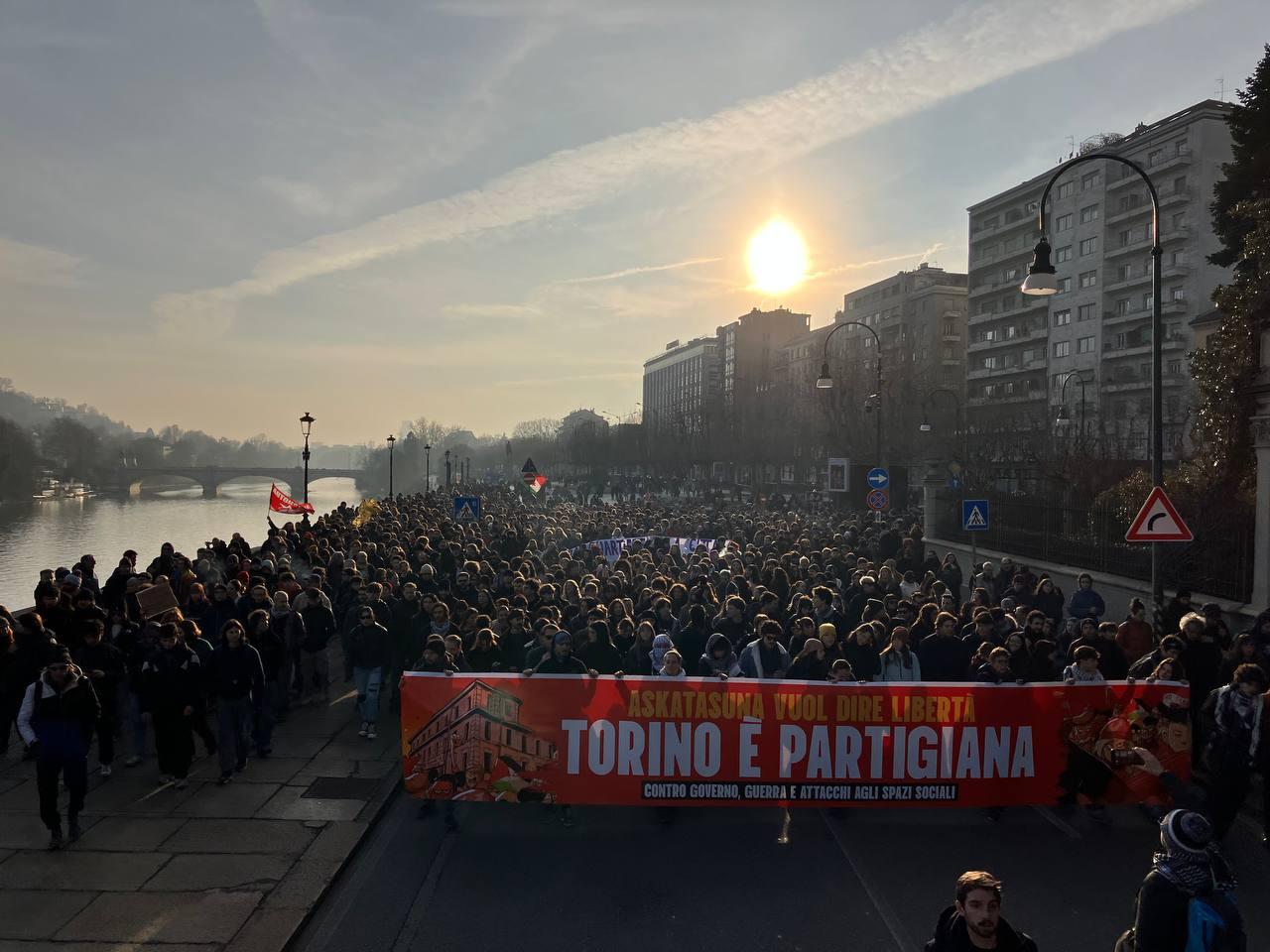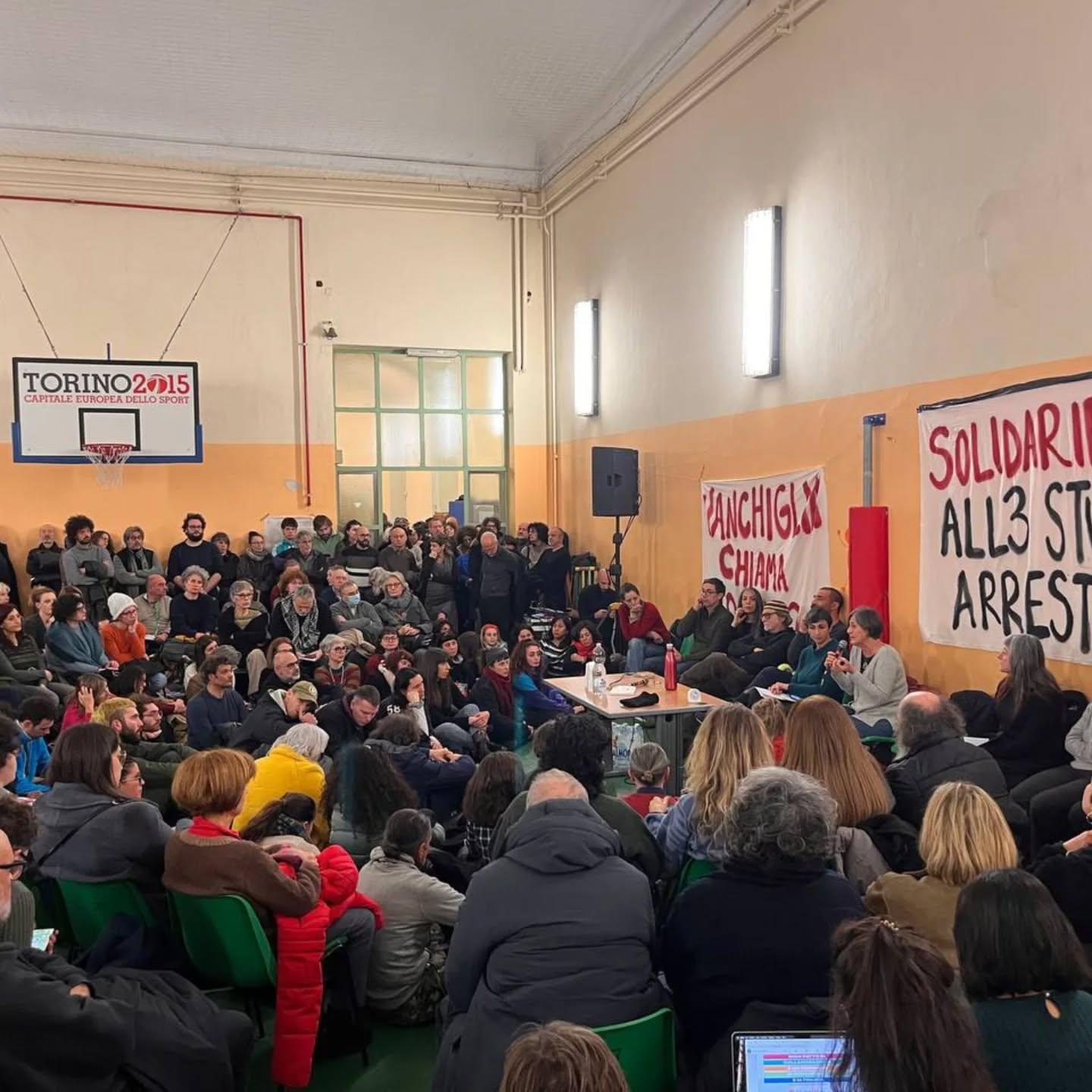
Counterpower in the crisis: conflict, organization, reproduction of struggles.

For an antagonist perspective in movements
On 13th and 14th October we met in Bologna, hailing from different Italian cities. We partook in two days of discussion on the themes of education, communication, the metropolis, international crisis and the role our country plays in them. An inspiring analysis – which is still in-progress – ensued, an analysis that is useful for continuing on the path of struggle we have chosen, well aware that we don’t have any chance of playing a pivotal role if not starting from recomposition.
Therefore, we want to share our thoughts with anyone interested in the development of struggles and the reproduction of antagonistic behaviours in Italy. Our country stands out as an anomaly in the Mediterranean: burdened by the harshest austerity policies, yet empty of social turmoils able to generate new scenarios. The government’s technocratic formula sells oppression to the voters/tv viewers in the form of science, by exploiting the traditional idea of knowledge as a neutral space. This dictatorship through statistical figures is based on the clever use of the crisis of representative politics as a tool for strengthening institutions in an authoritarian direction – this has a powerful deconstructing effect on naive hypotheses about the necessary causal links between the crisis of the system and the natural breakdown of its means of command.
The Italian technocracy is actually based on dividing and conquering the delegitimated and rotting political parties’ echelons. The task of the government, in tune with the judiciary and the head of state, is to put on stage the condemnation of the parties, and to exploit their weaknesses in order to carry out an extensive attack on Italian society at the same time. Because of this, besides a strategy aimed at institutional control, a strategy of social control is deepened. This control is enforced less through repression than through a valorization of social relations, which now takes on the role of a buffer against suffering – which cannot be carried out by the welfare state anymore. In reproducing its molecular domination, capitalism does not only use the family, but also associations, tamed countercultural factories, social cooperatives always standing between missionary volounteerism and savage exploitation, as antidotes to the disintegration produced by the policies of social devastation. It is the current interaction between institutions and human beings, between capital and the forces of living labour – the creation of intermediate bodies between the individual and the state, of transmission belts of a mistaken sense of solidarity – that the technocrats address in the socialization of debt and its consequences on life.
How is it possible then, today, to develop radical alternatives, counterpower and antagonism against the system, and at the same time autonomy from the system? Simply put, it can neither be through establishing a collective or a committee against environmental devastation, nor through occupying a building or organising a march. All of these are important, but they are not enough. The capitalist reproduction of social acceptance and political compatibility does not only need resigned solidarity but – as always in its democratic form – dissent, diversity and dialogue, strolling parades, the disciplined rituality of abstention from work and the regulated movements across the urban space. Therefore, building zones of counterpower against technocracy means, in the first place, managing to wield antagonistic control over the territory and its fluxes, in a tendential wrestling of urban command away from the capitalist institutions’ hands. That implies the capacity for developing autonomous political processes freed from institutional regulation: places of independent decision and practice, able to impose themselves as such against the authority exercised by our enemy. In the last 18 months, the governments have renounced all attempts to work out an institutional dialogue roundtable in Susa Valley, which demonstrates that it is possible to wrest away from capital, if not a territory, the control over its political planning.
Of course, the valley is not a place freed from enemy control – it is a militarized land – but it is a place of the development of forces opposed to capitalist interests, of social relations which are antagonist to its criteria of valorization. This is, in the last analysis, what is at stake when exercising real counterpower on the territories, in the schools and the universities; this does not happen through the presence of ideological enclaves or, worse, of ghettoes of self-referential sideliners (which, in many cases, squats and social centres are) nor through the development of pseudo-liberated paradises inside or outside institutions, but through the development of social relations which are incompatible with capitalist valorization – as militant ones are – and which have the goal of building a clashing subjectivity whose only meaning and aim is to turn upside down day after day, on a thousand social plateaus, the power relations with capital in every time and space of our lives. Our goal is ourselves as a class: becoming other than what we are during the process of a clash against the existing system. It is because of this, and not for purism or ideology, that we oppose the negotiation of space of economic, architectonic or semantic chance to act through institutional politics and dialogue with the police – our only response to such things should be one of non-communication and conflict. We are against anything that closes spaces for the struggles’ development and ruins the possibility of the production of antagonistic networking in the neighbourhoods, in the territories in which a political vacuum grows that we have to fill, before having to fight to reclaim them.
We don’t believe that today Italian antagonism needs any abstract frames; rather, we need a continuous linkage and positive reference to each other; even more than plain solidarity, we need a concrete reproduction of insubordination – playing up our own energies in order that they never become marginal, but mass-diffused in the terriories in which we act. Today it is much more important to talk to people and listen to them, rather than gather a dozen or so comrades around a government building in case of urgency. We need to understand the dynamics through which it is possible to transform the world, starting from our own specific context, by making baby steps – but establishing clash after clash a revolutionary sharing of everyday perspectives – by producing organizations of militants able to glimpse a light in the shadows of crisis: the development of a threat to constituted order. Therefore, to allow the antagonistic production of a new subjectivity, it is not enough to consort with our affinity groups or, worse, identitary and/or intellectualistic tribes, held together by the illusion that the world is to be changed with the individual nice gesture, by their own look or through a particular attitude during happy hour in a bar. We must plunge deep into society’s variegated and always surprising reality – never an easy task – without being afraid of the risks that this may entail – by first of all abandoning the wholeness of our own certainties.
Only by joining forces on the territories, and making it with methodical technique – by acting in an organized way, that is – will we be able to harm our opponents. We are completely agreed, as a premise, on the fundamental need for organisation if political action is to have any impact on the present. If plain rebelliousness is a breeding ground for the society of the spectacle, then revolutionary organization lives in the autonomy of living forces, first of all through the project: and its only historical rescue is victory. And so, we neither met in Bologna to tell each other how great we are, nor because we believe that we are the keepers of truth. We are comrades which experience everyday struggle on the territories, nothing more and nothing less. We are aware that our efforts are futile if they don’t produce a widening of subjectivity, and that our ideas have no value if not in their sharing. These ideas are not part of an ideology, and they will never be: on the contrary, they express the radical refusal of any ideology. Nothing is as harmful to confrontation as a totally coherent and static representation of the surrounding world, or as the continuous representation of labels and symbols; and that is what has always prevented political subjects, even on the movements’ side, from critically relating to/penetrating the social subjects on whose stances only power relations depend. Much more radically, it is what prevents our understanding of an ever dynamic and complex reality – always more unpredictable than any evolution we could imagine.
The comrades convened to the meeting “Counterpower in the crisis”, Bologna, 13th/14th October 2012
Ti è piaciuto questo articolo? Infoaut è un network indipendente che si basa sul lavoro volontario e militante di molte persone. Puoi darci una mano diffondendo i nostri articoli, approfondimenti e reportage ad un pubblico il più vasto possibile e supportarci iscrivendoti al nostro canale telegram, o seguendo le nostre pagine social di facebook, instagram e youtube.




















